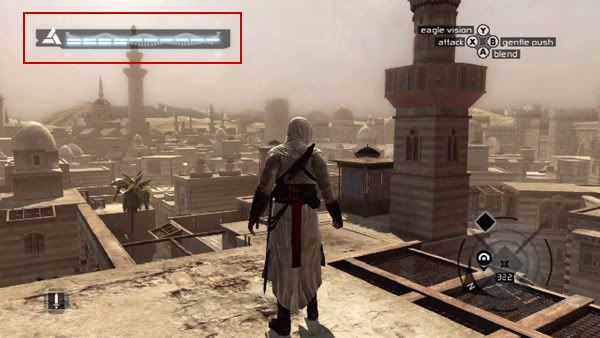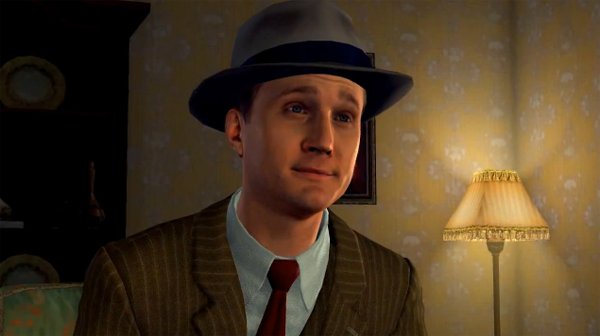This post has not been edited by the GamesBeat staff. Opinions by GamesBeat community writers do not necessarily reflect those of the staff.

I've read very often, in descriptions of a game's premise, a phrase which I've begun to consider: In a given title, "players take the role of"…. A Google search of this phrase naturally turns up almost exclusively hits relating to video games, but it wasn't until recently that I sat down and really considered the terminology here.
The only other possible medium besides gaming to which this might apply is theater, and yet I don't see a lot of criticism in games journalism drawing parallels between players and actors. It strikes me that picking up a controller and picking up a script are, in many respects, quite similar.
Most folks who've done some theater are familiar with "the actor's nightmare": You are in the middle of a performance for which you have forgotten all of your lines and most of your cues, and you are constantly being urged by your castmates to continue despite the fact that you have no script, no costume, and no pants.
I think that playing a video game, or at least any game with a narrative, is a bit like the actor's nightmare with all of the bite removed — you have assumed a role, you set foot onto a grand stage knowing none of the lines, and yet miraculously, every time you reach the next bit of the story, the words come tumbling from your mouth unbidden.
When we say that the player "takes the role of" John Marston, Commander Shepard, or even Sly Cooper, the implication is that we're not just using these characters as agents by which to accomplish gameplay objectives, but we are actively taking on a role — as an actor takes a role in bringing a play to life.

I wish I'd had a health bar when I did theater in high school.
The Assassin's Creed franchise has probably the most direct implementation of this of any game that I can think of. Your health bar effectively measures how in-character you are when you're playing. Because of the narrative conceit that you are Desmond Miles taking on the personae of his ancestors, the game will cause you to fail if you act "out of sync" with these historical assassins.
Kill a civilian? Nope, Altair didn't do that! Don't do it again or you'll be "desynchronized!" Essentially, you fail if you are out of character. This is an excellent excuse for giving you a game over if you're detected on certain missions ("Oops! Ezio wouldn't have gotten caught there!") as well as constructing the limits of the game world. ("Altair never swam a foot in his life!")
Just because the Assassin's Creed games are some of the only ones to take this concept and construct their world around it doesn't mean the principle isn't at work in other games. How many of us felt an uncomfortable dissonance playing Cole Phelps in L.A. Noire? Cole's kind of a jerk!

Look at him! He knows it.
It's not easy being a jerk onstage. Cole Phelps, however, isn't the player; he's an agent rather than an avatar, meaning that he doesn't directly represent the player's persona. We're not jerks; we're just playing one in the game.
Nevertheless, this sort of thing isn't as black and white as it can be in other media: The player has some agency over how Cole behaves in conversations but not a lot (certainly not as much as they do in the conversations of Commander Shepard — and yet, even there, there's some dissonance!). Sometimes, in the midst of an interrogation, I would back off in alarm. "Whoa, Detective! They told me the X button meant 'doubt,' not 'tear the witness a new one!'"
Nevertheless, I played an awful lot of L.A. Noire "in-character." I was careful with my driving unless we were in the middle of a chase scene, I walked when I could have dashed, and I didn't run people down in the street. Many players like to push the boundaries of the world and test the limits of the play space they're given. There are plenty of others who don't — players who don't like to break the game because it breaks the illusion.
I've read a lot of arguments considering the matter of cut-scenes and their place in gaming, but I think that this one, by Alois Wittwer over at Nightmare Mode, might be among the few I've read in defense of them. In discussing player agency, Wittwer uses the excellent example of Final Fantasy IV's opening to show us how a scene over which we have no control can be used to invest us in a world: We're taking on the role of Cecil Harvey, who does something pretty reprehensible in which we're immediately complicit, and so his redemption over the course of the story is in some way shared by the player.

Boy, it's a shame you didn't do something about it, huh?
Cecil is a member of a military organization which ransacks a tiny, helpless village to obtain a precious resource (one of the ubiquitous crystals in the Final Fantasy franchise). The player has very little agency here: A long story sequence, including a handful of battles, plays out before we're given control of our hero. The argument against cut-scenes — the argument for greater player agency — suggests that we can't feel guilt over Cecil's actions because we had no choice in them. Like Cole Phelps, Cecil is an agent, not an avatar. He's not representative of the player; he's just a role we're taking on.
Cecil's plight, however, is that he's not in control of his situation any more than the player is; he's in service to a king he no longer trusts, committing acts for which he feels remorse. A sympathetic player naturally wants to enable his escape from such a situation (and will feel satisfaction for him when we finally help him to do so).
Anyone who has played a part in a theater production at any level will tell you that there is great joy in putting on a play. Taking on the role of a character and working with comrades to bring a story to life for an audience is an enormously satisfying endeavor. What a good narrative in a game allows us to do is to participate in this experience on our own, without the aid of others. We take on one role, just as we would onstage, and trust to the game's designers to carry the rest.
Much has been said in games criticism about how the player is simultaneously creator and audience, something which is true in no other medium — but I would add that if any other medium comes close, it's the theater. Onstage, one can participate in a story which unfolds in real-time and which has no "post-production." The only line drawn between the creators of a stage production and the audience is one which is invisible, hypothetical, mutually agreed upon, and respected by all parties involved (or not!).
Playing a game is like having that fourth wall removed, being invited up from the audience to participate, and immediately knowing all of the lines. What a wonder! Is it so surprising, then, that some of us gamers are perfectly willing to abandon our agency if it's in service of the production as a whole?
I think that those of us who consider games critically ought to be more cognizant of the parallel between games and the stage — it strikes me as a more apt comparison than games and cinema. It might behoove game designers, as well, to consider this comparison when thinking about matters of player agency in their design. If we think about the roles that we're taking on as gamers, we might be inclined to play differently — and the experience might even be improved!
This post originally appeared on The Lost Levels.
